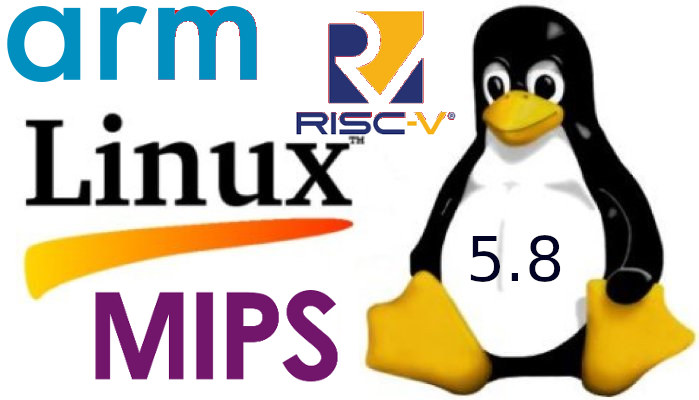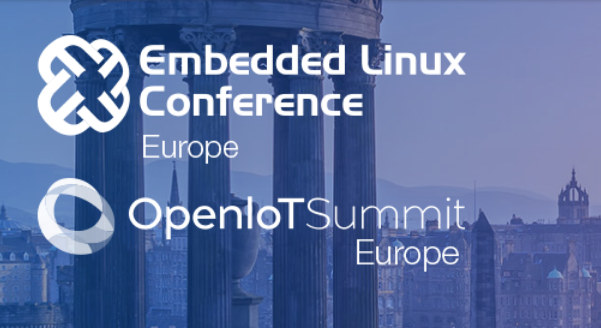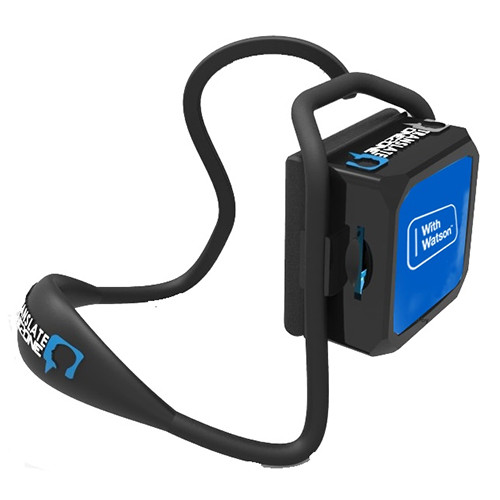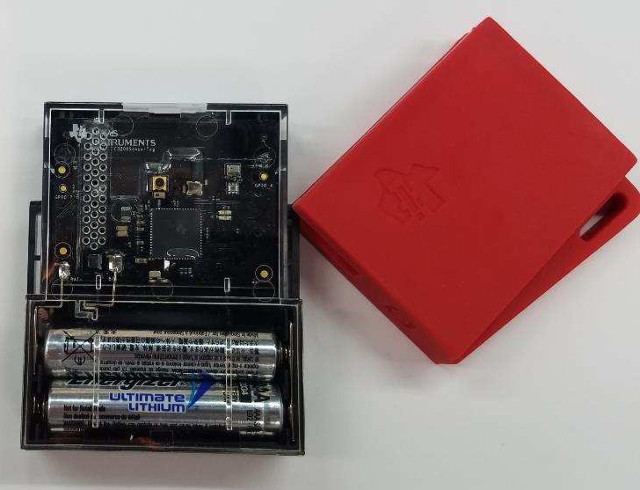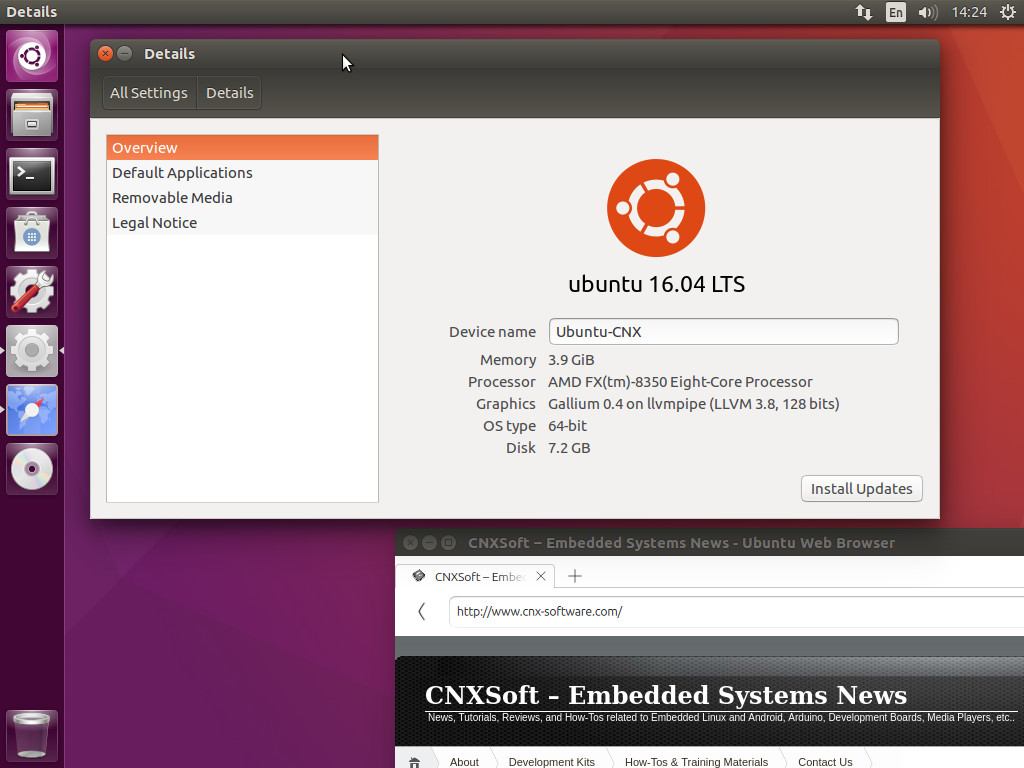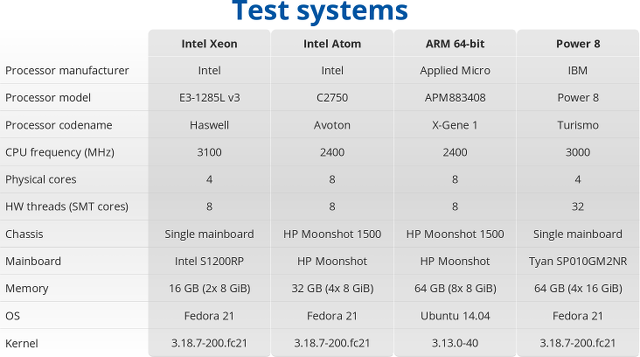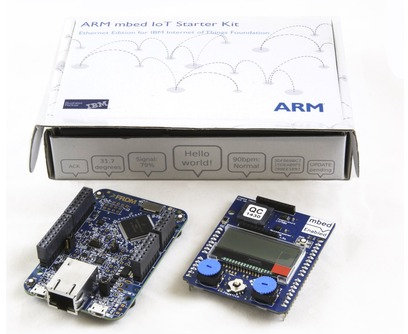Linus Torvalds has just released Linux 5.8: So I considered making an rc8 all the way to the last minute, but decided it’s not just worth waiting another week when there aren’t any big looming worries around. Because despite the merge window having been very large, there really hasn’t been anything scary going on in the release candidates. Yeah, we had some annoying noise with header file dependencies this week, but that’s not a new annoyance, and it’s also not the kind of subtle bug that keeps me up at night worrying about it. It did reinforce how nice it would be if we had some kind of tooling support to break nasty header file dependencies automatically, but if wishes were horses.. Maybe some day we’ll have some kind of SAT-solver for symbol dependencies that can handle all our different architectures and configurations, but right now it’s just a manual […]
Embedded Linux Conference Europe & OpenIoT Summit Europe 2018 Schedule
The Embedded Linux Conference & OpenIoT Summit 2018 took place in March of this year in the US, but the European version of the events are now planned to take place on October 21-24 in Edinburg, UK, and the schedule has already been released. So let’s make a virtual schedule to find out more about some of interesting subjects that are covered at the conferences. The conference and summit really only officially start on Monday 22, but there are a few talks on Sunday afternoon too. Sunday, October 21 13:30 – 15:15 – Tutorial: Introduction to Quantum Computing Using Qiskit – Ali Javadi-Abhari, IBM Qiskit is a comprehensive open-source tool for quantum computation. From simple demonstrations of quantum mechanical effects to complicated algorithms for solving problems in AI and chemistry, Qiskit allows users to build and run programs on quantum computers of today. Qiskit is built with modularity and extensibility […]
Lingmo Translate One2One Earpiece Can Interpret 8 Languages with IBM Watson Natural Language & Translation APIs
Automation are greatly reduce the number of workers requires to perform manufacturing, and now technology is moving forward with artificial intelligence applications writing financial & sports news, analyzing medical imaging or other data to speed up and improve accuracy of diagnostics, and more. Yesterday, I found out that pair programming, which normally combines two human programmer working together on the same program, may soon pair a human programmer with an AI programmer helping selecting the best code, and today I found out live interpreters may get some competitions with products like Lingmo Translate One2One earpiece that can interpret 8 languages nearly in real-time. The device was unveiled at the United Nations Artificial Intelligence (AI) for Good Summit in Switzerland, as it combines IBM Watson’s Natural Language and Language Translation APIs, together with Lingmo’s proprietary hardware and machine learning applications. It’s said to be working as an independent device without the […]
Texas Instruments CC3200 WiFi SensorTag is Now Available for $40
Texas Instruments launched SensorTag in 2013, and at the time there was just a Bluetooth 4.0 LE version with 6 different sensors. I bought one for $25 at the time, and tried it with a Raspberry Pi board and a BLE USB dongle. Since then, the company has launched a new multi standard model (CC2650STK) supporting Buetooth low energy, 6LoWPAN, and ZigBee, and has just started to take orders for CC3200 WiFi SensorTag for $39.99, which seems expensive in a world of $2 ESP8266 modules. But let’s see what the kit has to offer: Wireless MCU – Texas Instruments CC3200 SimpleLink ARM Cortex-M4 MCU @ up to 80 MHz, with up to 256KB RAM, Hardware Crypto Engine, DMA engine Storage – 1 MB serial flash memory Connectivity – 802.11 b/g/n WiFi with on-board inverted-F antenna with RF connector for conducted testing Sensors – Gyroscope, accelerometer, compass, light sensor (OPT3001), humidity […]
Marvin is a Plug and Play, Arduino Compatible, LoRa USB IoT Development Board (Crowdfunding)
LoRa appears to be one of the most popular LPWAN standards so far, with hobbyist development boards such as LoPy or LoRaONE, and we’ll soon have at least one more choice thanks to Marvin, a LoRa development board with a full size USB port. Marvin board specifications: MCU – Atmel/Microchip ATmega32u AVR MCU (same as Arduino Leonardo board) Connectivity – LoRa via Microchip RN2483; Supports both 868 MHz and 433 MHz frequency bands, on-board antenna USB – 1x USB, 1x micro USB port for power and programming Debugging – USB, and ISP header Expansion – 5x Grove connectors Power Supply – 5V via USB port Dimensions – N/A, but similar to USB flash drive The board can be programmed with the Arduino IDE, and they mention IBM Bluemix platform, and Node-RED, but overall details about documentation and software are scarce right now. One of the advantage of this form factor is […]
Ubuntu 16.04 LTS “Xenial Xerus” Release
Ubuntu 16.04 Long Term Support (LTS) release of the popular Linux distribution is scheduled for later today. The release codenamed Xenial Xerus will feature ‘snap’ package format, LXD pure-container hypervisor, and be the very first release with support for converge with IoT, phone, desktop and server versions running on the same base. Some of the key changes listed by Canonical include: Introduces “snaps” for new robust, secure app format which can still be used along ‘deb’ packages Introduces LXD pure-container hypervisor with OpenStack Mitaka Supports IBM Z and LinuxONE systems with flat pricing Steps towards converged Ubuntu across IoT, Phone, Desktop and Server Introduces ZFS and CephFS for large-scale cloud storage Ubuntu 16.04 will also run updated version of packages with Linux 4.4, Python 3.5, OpenSSH 2.0, PHP 7.0, MySQL 5.7, etc.. More details about the changes can be found on Xenial Xerus release notes. I’ve also noticed the system […]
HPC Performance & Power Usage Comparison – Intel Xeon E3 vs Intel Atom C2720 vs Applied Micro X-Gene 1 vs IBM Power 8
Last year, the CERN published a paper comparing Applied Micro X-Gene (64-bit ARM) vs Intel Xeon (64-bit x86) Performance and Power Usage, and they’ve now added IBM Power 8 and Intel Atom Avoton C2750 processor to the mix in a new presentation entitled “A look beyond x86: OpenPOWER & AArch64“. So four systems based on Intel Xeon E3-1285L, Intel Atom C2750, Applied Micro X-Gene 1, and IBM Power 8 were compared, all running Fedora 21, except the HP Moonshot 1500 ARM plarform running Ubuntu 14.04 and an older kernel. All four systems use gcc 4.9.2, and Racktivity intelligent PDUs were used for power measurement. I’ll just share some of their results, you can read the presentation, or go through the benchmark results to find out more. HEP-SPEC06 is a new High Energy Physics (HEP) benchmark for measuring CPU performance developed by the HEPiX Benchmarking Working Group, and here it’s not […]
Freescale Kinetis based Mbed IoT Starter Kit Ethernet Edition Connects to IBM IoT Cloud
ARM, IBM and Freescale have jointly announced Mbed IoT Start Kit – Ethernet Edition at Embedded World 2015 that consists of a Freescale Kinetis Cortex M4 mbed-enabled development board and a sensor IO application shield that interface with IBM Bluemix cloud platform. Freescale FRDM-K64F Freedom development board specifications: MCU – Freescale Kinetis K64 (MK64FN1M0VLL12) ARM Cortex M4 MCU @ 120 MHz with 1 MB flash memory, 256 KB RAM External Storage – SDHC slot Connectivity – 10/100M Ethernet USB – Dual role USB interface with micro-B USB connector Sensors – FXOS8700CQ accelerometer and magnetometer Headers – Arduino R3 compatible I/O connectors Misc – RGB LED, two user push buttons Power Supply – OpenSDAv2 USB, Kinetis K64 USB, and external source The board also features a programmable OpenSDAv2 debug circuit supporting the CMSIS-DAP Interface software that provides a mass storage device (MSD) flash programming interface, or a CMSIS-DAP debug interface, or […]


